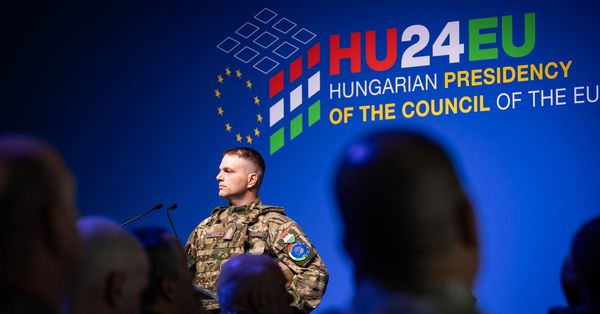Between 7 and 10 October 2024, Budapest hosted the Erasmus+ Informal National Agency (NA) Directors’ Meeting. Co-organised by Tempus Public Foundation, the event brought together over 100 directors and senior officials from the Erasmus+ and European Solidarity Corps Programmes, representing 32 countries.
The meeting aimed to provide a collaborative platform for the heads of National Agencies to address current issues, share best practices, and exchange ideas on the future of these impactful European programmes.
Key Highlights
- Opening Plenary on 8 October: The event started with welcoming remarks by Ms Zsofia Nagy-Vargha, Deputy State Secretary for Youth at the Ministry of Culture and Innovation, and Ms Eszter Lukács, PhD, Member of the Board of Trustees of Tempus Public Foundation. Following the opening, Mr Michael Teutsch and Ms Marta Gutierrez Benet from the European Commission offered a programme update, setting the stage for fruitful discussions.
- Thematic Discussions: Joint group work sessions focused on major topics, such as the simplification of the programmes’ administration, enhancing synergies between different sectors and activities, the role of the National Agencies and promoting EU values through active participation.
- Parallel Sessions: Attendees split into specialized Education & Training and Youth sessions. These discussions covered topics such as programme evaluation, findings of the SALTO research, National Agency (NA) experiences, and updates on advocacy efforts.
Strategic Discussions about the Future
On 9 October, the focus shifted towards strategic planning for the future of Erasmus+ and the European Solidarity Corps Programmes. High-level discussions included priorities, feedback from recent programme meetings, and the future coordination of the Education & Training NA network. Breakout sessions and group work allowed participants to dive deeper into programme planning and collaboration strategies.
Closing and Next Steps
The event concluded on 10 October, with a series of sessions dedicated to youth initiatives, future programme architecture, and a review of the outcomes of the meeting. The agenda provided space for discussing last-minute issues, giving feedback, and a formal handover to the next host country.
This four-day event was a unique opportunity for stakeholders across Europe to strengthen ties, refine program strategies, and continue the success of Erasmus+ and European Solidarity Corps Programmes, ensuring they remained pillars of European cooperation.

